Filter by
Allergy Medicine for Dogs
Allergy medicine for dogs can reduce and even eliminate symptoms like sneezing, coughing, runny nose, and excessive itching. If your dog has allergies, they may benefit from allergy pills for dogs that can reduce their symptoms.
-
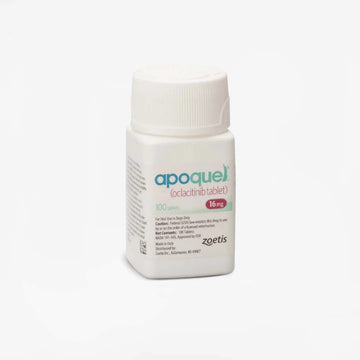
Apoquel (Rx)
$3.19 / unit
Multiple options available
-
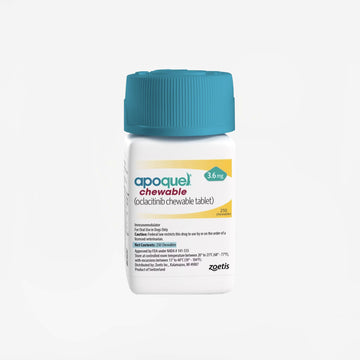
Apoquel Chewable (Rx)
$3.07 / unit
Multiple options available
-
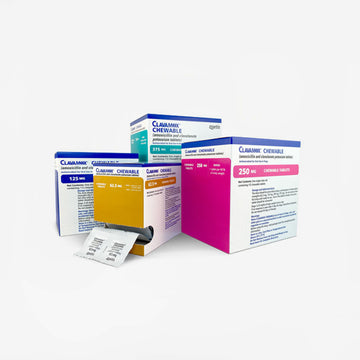
Clavamox Chew (Rx)
$0.85 / unit
Multiple options available
-
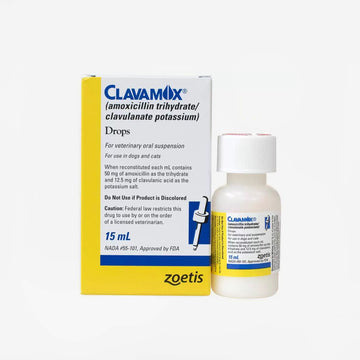
Clavamox (suspension) (Rx)
$34.81 / unit
-
$
SAVE 10% WHEN YOU BUY TOGETHER
Get our dermatologist-created treatment plan for allergies
We worked with top specialists to develop this proven plan to relieve dog allergies.
-

Cephalexin (Rx)
$0.50 / unit
Multiple options available
-
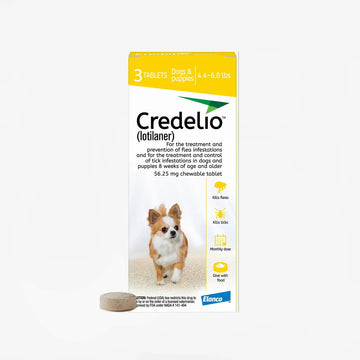
Credelio - 3 months (Rx)
$84.56 / unit
20% off for a limited time Use code FLEATICK20Multiple options available
-
$
SAVE 10% WHEN YOU BUY TOGETHER
Get our dermatologist-created treatment plan for allergies
We worked with top specialists to develop this proven plan to relieve dog allergies.
-

Prednisolone (Rx)
$0.25 / unit
Multiple options available
-

Douxo S3 PYO Mousse
$27.99 / unit
-
$
SAVE 10% WHEN YOU BUY TOGETHER
Get our dermatologist-created treatment plan for allergies
We worked with top specialists to develop this proven plan to relieve dog allergies.
-

Douxo S3 PYO Shampoo
$22.99 / unit
-
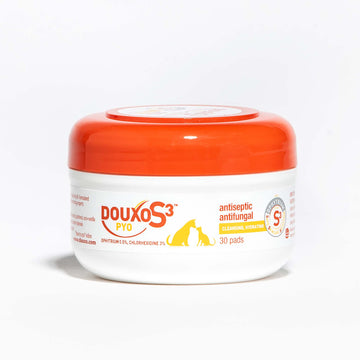
Douxo S3 PYO Pads
$17.99 / unit
-
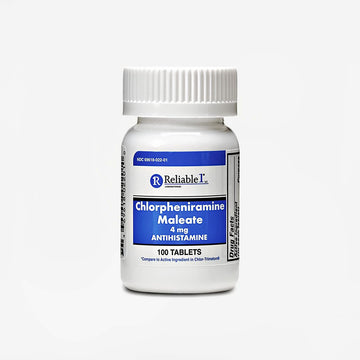
Chlorpheniramine (Rx)
$0.09 / unit
-
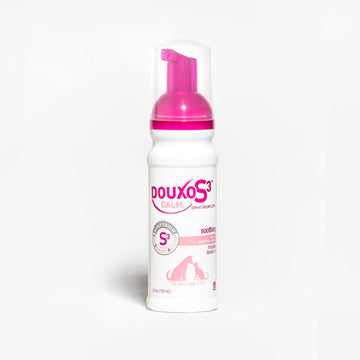
Douxo S3 Calm Mousse
$23.99 / unit
-
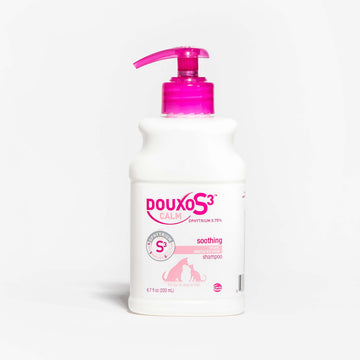
Douxo S3 Calm Shampoo
$27.69 / unit
-
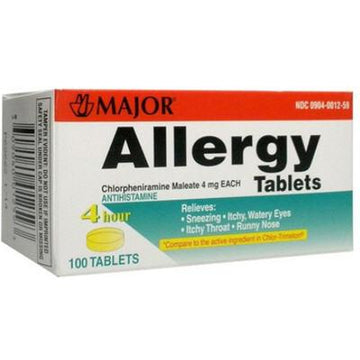
Chlorpheniramine Tablets (Rx)
$6.79 / unit
-
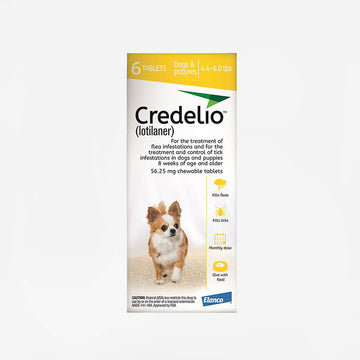
Credelio - 6 months (Rx)
$159.54 / unit
20% off for a limited time Use code FLEATICK20Multiple options available
-
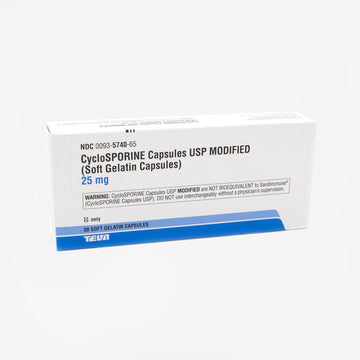
Cyclosporine (Modified) Capsules (Rx)
$26.39 / unit
Multiple options available
-

Purina Pro Plan Veterinary Diets HA Hydrolyzed, Vegetarian Canine Formula
$54.99 / unit
Multiple options available
-
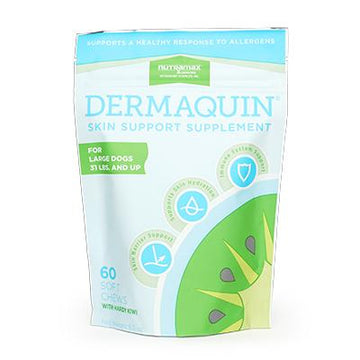
Dermaquin Soft Chews for Dogs
$31.59 / unit
Multiple options available
-

Zenrelia Tablets (Rx)
$61.79 / unit
Multiple options available
-

Atopica (Rx)
$44.39 / unit
Multiple options available
- 1
- 2
Frequently asked questions
What are the signs my dog has allergies?
What are the signs my dog has allergies?
The most common sign of allergies in dogs is excessive itchiness. There are several types of allergies dogs can have, including:
- Skin allergies
- Environmental allergies
- Food allergies
While the different types of allergies that affect dogs have different causes, common symptoms of allergic reactions in dogs include the following:
- Itching
- Hives
- Swelling
- Inflammation
- Sneezing
- Itchy ears
- Diarrhea & vomiting
Can I give my dog human allergy medicine?
Can I give my dog human allergy medicine?
Never give your dog human allergy medicine without first consulting a vet. You won't know if your dog truly has allergies until they're diagnosed by a professional. Since many of the symptoms of allergies are associated with a wide range of illnesses, giving them human allergy medicine can be dangerous, potentially masking the symptoms but not treating the root cause.
For example, your pet may have diarrhea for any number of reasons, so they may need diarrhea medicine for dogs. Meanwhile, your pet could have itchy skin due to environmental allergies, so they may need itching medicine for dogs to make them more comfortable. Ultimately, you won't know if anything you give your dog will be effective unless you speak to a vet.
That being said, some human allergy medicines are safe for dogs. For example, antihistamines like diphenhydramine, also known as Benadryl, are safe for dogs. However, you should always consult your vet to get the proper dosage.
How do I know my dog has allergies and not another condition?
How do I know my dog has allergies and not another condition?
Since allergies share many of the same symptoms as other serious illnesses, your vet can diagnose them in several ways to ensure your pup doesn't have another condition. First, however, your vet will try to rule out underlying health conditions that may be causing their symptoms. Then, once they've ruled out several common underlying diseases, they'll focus on diagnosing allergies.
They can diagnose allergies in a few ways, including the following:
- Allergy testing: Allergy testing consists of either blood or intradermal skin tests. Much like in humans, intradermal skin tests will test common allergens by injecting them under the dog's skin and monitoring it for signs of an allergic reaction, such as redness, swelling, and hives.
- Elimination diet: An elimination diet is recommended for dogs with food allergies. These diets eliminate ingredients from your dog's food and allow you to monitor them to determine their improvement. Elimination diets allow dogs to consume a limited number of ingredients to feed a dog for two to three months to identify which ingredient is causing the itchiness.
Which prescription allergy medication for dogs is the best?
Which prescription allergy medication for dogs is the best?
Which prescription allergy medicine for dogs is best depends on the cause of your dog's allergies. Some dogs may not need medications and will instead change their diets or take over-the-counter medications based on the cause and severity of their symptoms.
Several prescription dog allergy medicines, including Apoquel, treat allergic skin diseases by targeting inflammation. In addition, your vet may try hydroxyzine, a prescription antihistamine used to treat various allergic conditions that cause itchiness.
Of course, you won't know which medication for allergies in dogs is best until you make an appointment with your vet. In addition, we can rule out any other potential causes of your dog's symptoms and treat various common pet ailments. For example, if your pet suffers from GI issues, we can prescribe vomiting medication for dogs to reduce dehydration and help them feel better.
Dutch offers remote pet care that allows us to ship medications for dog allergies directly to your door. Try Dutch telemedicine for pets today to diagnose and treat your pet's allergies to alleviate their itchy skin.





















